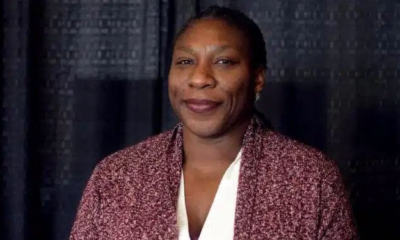Trending
Canada is witnessing an unprecedented spike in asylum claims by international students, according to exclusive Immigration, Refugees and Citizenship Canada (IRCC) data obtained by Global News.

The data indicates that 2025 is poised to break last year’s record of 20,245 asylum claims by international students in Canada.
As the federal government restricts pathways to permanent residency, experts warn the trend could intensify, putting pressure on housing, healthcare, and public services.A Record-Breaking Surge in Asylum Claims
In 2024, asylum claims by international students nearly doubled from 2023 and were six times higher than in 2019.
The first quarter of 2025 alone saw 5,500 claims—a 22% jump from the same period last year.
Immigration lawyers attribute this surge to stricter immigration policies, which have limited options for students seeking permanent residency.
“The government has shut down many regular pathways to permanent residence,” said a Toronto-based immigration lawyer. “This is pushing students toward claiming asylum as a last resort.”Prime Minister Mark Carney, echoing his predecessor Justin Trudeau, has vowed to reduce immigration to “sustainable levels.”
On May 2, 2025, Carney announced plans to cap temporary workers and foreign students at under 5% of the Canadian population by 2027, down from 7%.
“This will ease the strain on housing, infrastructure, and social services,” Carney stated.
To curb the influx, Ottawa slashed study permits by 40% in 2024 to approximately 360,000, restricted work hours for foreign students, and tightened spousal work permit rules.Former Immigration Minister Marc Miller called the system “overheated,” citing exploitation by “diploma mills” offering low-value credentials.
Why Are Claims Rising?
Despite fewer study permits, asylum claims continue to climb.
An immigration expert explains that many students, after earning diplomas from questionable institutions, find themselves ineligible for work permits or permanent residency.Some students have diplomas that hold little value in the job market. They’re stuck with no clear path forward,” immigration experts say.
The IRCC notes that study permits, often valid for multiple years, mean the full impact of permit cuts may not yet be felt.
“The proportion of permit holders claiming asylum remains small compared to total permits issued,” an IRCC spokesperson said. Colleges with the Highest Asylum Claims
In 2024, the following post-secondary institutions reported the highest claims for asylum from foreign students:
Conestoga College: 720 claims
Seneca College: 650 claims.
Université du Québec à Chicoutimi: 500 claims
Niagara College: 495 claims
Collège Ellis (Trois-Rivières): 475 claims
Affected institutions express frustration over their lack of control. Université du Québec à Chicoutimi selects students based on academic merit, unaware of their intentions to seek asylum.
Niagara College emphasized its willingness to collaborate with the government but noted it receives no notification of claims.
Collège Ellis highlighted a “significant communication gap” with immigration authorities and is considering barring students from certain countries due to the issue.
A Strained Asylum System
The Canadian asylum process requires claimants to prove a credible fear of persecution in their home country.
However, the Immigration and Refugee Board (IRB) is grappling with a backlog of over 281,000 cases, leading to lengthy delays.
While some question the legitimacy of student claims, immigration experts stress that many are valid.
“Take a student from Ukraine who arrived years ago—circumstances in their home country have drastically changed. Their claim isn’t fraudulent just because they were a student,” an immigration expert said.
Immigration specialists acknowledge the political pressure to reduce immigration.
“There’s a housing crisis and a healthcare crisis. Refugees haven’t caused these, but high immigration levels may worsen them.”
As the country navigates this complex issue, the debate intensifies: how can the country uphold its humanitarian commitments while addressing domestic challenges?
With claims for asylum on track to hit new highs in 2025, the government faces tough choices.
Stay informed on the Canadian immigration policies and their impact. Follow for updates on this developing story.
How many refugee claims are successful in Canada?
As per CBC News, the recognition rate—which is calculated by dividing the number of refugee claims that are approved by the Immigration and Refugee Board by the total number of applications that have been resolved on merit—rose from 64% in 2018 to 82% in the first nine months of 2024.
Which country sends the highest number of foreign students to Canada?
More than 40% of foreign students are from India, followed by 10% from China.
Is it possible for an international student to ask for asylum in Canada?
Yes, an international student can apply to claim asylum if they are able to prove they have a well-founded fear of persecution in their home country.
Gagandeep Kaur Sekhon
Gagandeep Kaur Sekhon moved to Canada in 2010 on a study visa. She navigated through the ups and downs of her student life and gained her permanent residency in 2015. Today, she is a proud Canadian citizen residing in Calgary, Alberta. She is mother of 2 beautiful daughters and making her difference through writing and guidance at INC – Immigration News Canada.
Trending
Gunmen k!ll President General of Ogidi community and one other in Anambra.

Unidentified gunmen, suspected to be cultists, have k!lled a community leader and one other person in Anambra State.
The President-General of Ogidi community in Idemili North Local Government Area of Anambra State, Ikwuka Okoye, popularly known as Anumili (pictured above), was k!lled on Friday, Feb. 6.
The attack was alleged to have been carried out by members of a rival cult group in revenge for the de@th of their leader, who was arrested and k!lled by local security operatives.
During the attack, which took place at the School Field, Ogidi, another man whose identity has yet to be ascertained was also gunned down.
The spokesman for the Anambra State Police Command, SP Tochukwu Ikenga, confirmed the incident in a press statement on Saturday.
Ikenga said the incident is allegedly linked to the recent capture and k!lling of a known notorious cultist within the community.
He said, “The Anambra State Police Command regrets the murd£r of the President-General of the Ogidi community and one other person. The incident, which occurred on the evening of February 6, 2026, at the School Field, Ogidi, is allegedly linked to the recent capture and k!lling of a known notorious cultist within the community.
“Following the report, police operatives swiftly took over the scene of the incident and commenced investigations. The command is currently working with eyewitness accounts and other available intelligence to identify and arrest the perpetrators.
“The Anambra State Police Command assures members of the public that all efforts are being intensified to bring those responsible to justice.
“Residents are urged to remain calm and cooperate with the police as investigations continue.
“Further developments will be communicated in due course.”

Trending
Police bust syndicate behind nude photo blackmail in Lagos

Men of the Police Special Fraud Unit (PSFU), Lagos, have apprehended three suspects who allegedly run a cyber blackmail and extortion scheme in the state.
According to the spokesperson of the unit, DSP Ovie Ewhubare, the suspects get a hold of their victims explicit photos and then threaten to release them if a ransom is not paid.
He said that the suspects, two males and a female, were apprehended after a petition was filed by a complainant who reported being repeatedly threatened by unknown individuals demanding money.
“The complainant received several phone calls in which the callers threatened to release her nude photographs to the public if she failed to pay them. Acting out of fear and emotional distress, she transferred money to the suspects.
The situation escalated when the suspects demanded an additional N10 million, prompting her to formally petition the police,” he said
The police imagemaker state dthat upon receipt of the complaint, the Commissioner of Police, PSFU, Mr Kayode Ojapinwa, ordered the immediate deployment of operatives to investigate the matter.
“The investigation led to the arrest of the three suspects. Investigations revealed that one of the suspects gained unlawful access to the complainant’s mobile device and fraudulently transferred her nude photographs to his own device. Further findings indicated that he conspired with the other suspects and other accomplices currently at large to demand and receive money from the complainant in several tranches,” he said
According to him, the suspects are currently in police custody and are expected to be arraigned before a court of competent jurisdiction.
The image maker said that investigations were ongoing to apprehend other fleeing members of the syndicate and to recover all proceeds of the alleged crime.
Trending
Catholic Priest Collapses And D!es In Front Of Congregation While Walking To Tabernacle To Return Holy Communion

A Catholic priest has tragically passed away after suddenly collapsing in front of the congregation during Sunday mass.
The tragic incident took place last Sunday, February 1 in Wiesmath in the district of Wiener Neustadt, Austria.
Shortly after administering Holy Communion, 59-year-old priest Raimund Beisteiner was about to return the host to the tabernacle when he “suddenly” collapsed, according to a statement from the Archdiocese of Vienna.
“Despite immediate professional assistance, he di£d in the church,” the statement said.
The mayor of Wiesmath, Erich Rasner, had also attended the Mass with many other believers and witnessed the dramatic scenes.
The shock in Wiesmath at the loss of the popular priest is great. Beisteiner had shaped the spiritual life of the parish for almost two decades and was highly regarded far beyond the community.
Rasner praised him as an “extremely conscientious, sensitive priest” and also emphasized the personal loss of a friendship that had grown over many years.
A prayer service was organized at short notice for the late priest. It was attended by numerous priests from the deanery as well as Archbishop Josef Grünwidl.


-
Business1 year ago
US court acquits Air Peace boss, slams Mayfield $4000 fine
-

 Trending1 year ago
Trending1 year agoNYA demands release of ‘abducted’ Imo chairman, preaches good governance
-

 Politics1 year ago
Politics1 year agoMexico’s new president causes concern just weeks before the US elections
-

 Politics1 year ago
Politics1 year agoPutin invites 20 world leaders
-

 Politics1 year ago
Politics1 year agoRussia bans imports of agro-products from Kazakhstan after refusal to join BRICS
-
Entertainment1 year ago
Bobrisky falls ill in police custody, rushed to hospital
-
Entertainment1 year ago
Bobrisky transferred from Immigration to FCID, spends night behind bars
-
Education1 year ago
GOVERNOR FUBARA APPOINTS COUNCIL MEMBERS FOR KEN SARO-WIWA POLYTECHNIC BORI













